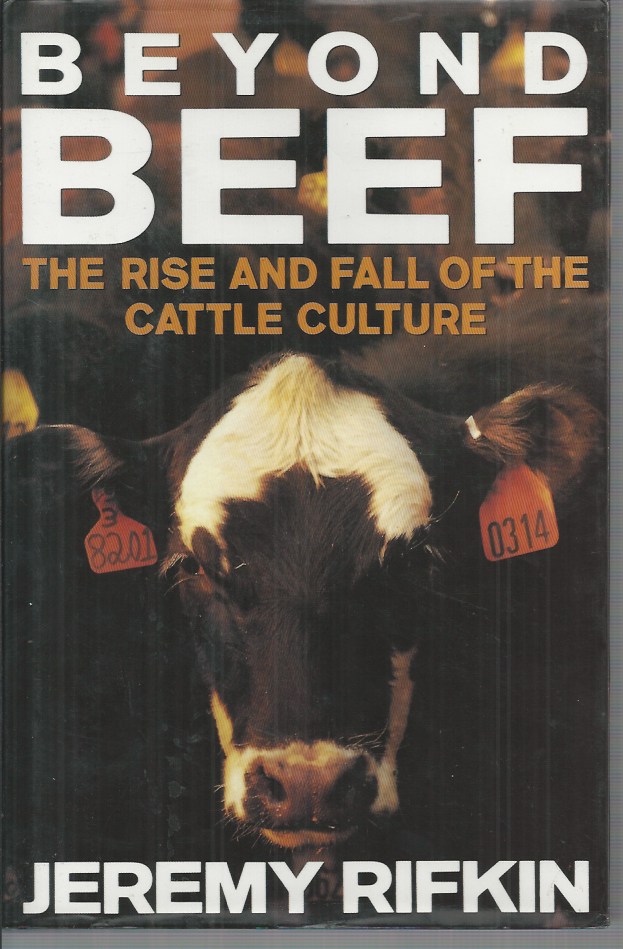An analysis of the beef culture incorporates anthropology, history, sociology, economics, and ecology to demonstrate how “cattle culture” has changed our world.
“There are currently 1.28 billion cattle populating the earth. They take up nearly 24 percent of the land mass of the planet and consume enough grain to feed hundreds of millions of people. Their combined weight exceeds that of the human population on earth.”
Beginning with this startling and unsettling set of facts, Jeremy Rifkin interweaves anthropology, history, sociology, economics, and ecology in a brilliant and devastating examination and indictment of the cattle culture that has come to shape and warp our world.
The fascinating story he tells goes back to the beginning of civilization, when the belief in the mystical power of cattle and magical properties of beef first was born. He charts the age-old conflict between those who raised cattle and those who farmed the land-a conflict that drastically affected the course of Western history and culture. Rifkin cuts through the myth of the cowboy to illumine the international intrigue, political give-aways, and sheer avarice that transformed the great American frontier into a huge cattle breeding ground. Then, taking us from the sprawling Chicago stockyards to the automated factory feedlots of the Iowa plains, he presents the most disturbing indictment of the beef industry since Upton Sinclair shocked the American public with The Jungle eighty-five years ago. Finally, he gives us a superb overview of the triumph of the beef mystique in America and the world-a triumph marked by the golden arches of McDonald’s in cities as distant from each other as New York, Tokyo, and Moscow.
Above all, Beyond Beef adds up the cost of all this. It depicts a world in which the poorer peoples of the planet have been starved to support the beef addiction of a handful of wealthy nations. In Europe, the United States, and Japan, this addiction has resulted in millions of deaths from heart attack, cancer, and diabetes-the diseases of affluence. The book also describes the grim ecological effects of the cattle culture: rain forests burned, fertile plains turned into desert, and climate threatened by global warming.
Beyond Beef may well take away your appetite for beef, but it will stir your hunger for change-before it is too late. This persuasive and passionate book is for the 1990s what Silent Spring was for an earlier decade-an urgent warning to everyone who cares about the fate of the earth.
First Edition.
- xi, 353 p. ; 24 cm. #010424
- Bibliography: p. 324-340.
- Beef — Social aspects
- Food habits — South America — Case studies
- Beef industry — Environmental aspects
- Cattle trade — History
